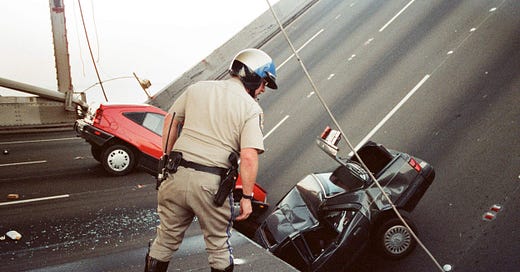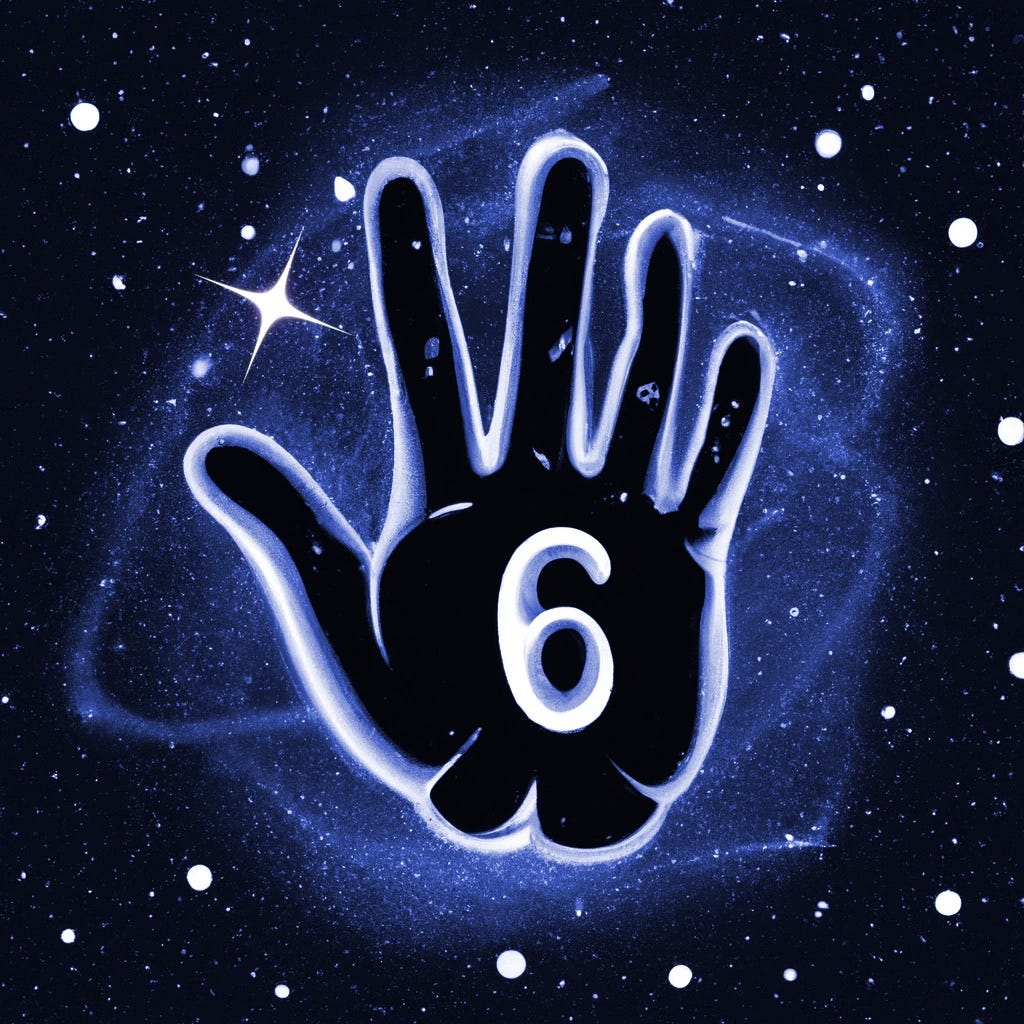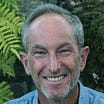

Discover more from Soaring Twenties
Everyone say hello to our latest member
,here with his STSC Substack debut. Even a cursory glance around his Substack An Ordinary Disaster will show you that we are lucky to have him on the team.Bowen is a great writer and more importantly he absolutely lives up to his claim that ‘[He is] here to tell the truth.’ I’m a big fan of memoirists and those who write from experience just as I am a fan of people who call their shots and then live up to them with their creative work. So Bowen’s work is right up my street.
I trust you’ll feel the same way once you’ve read todays contribution.
Enjoy.
TJB.
The quake of ’89 shook the bones of old San Francisco like nothing since the Big One of 1906—and changed the course of my own life just as dramatically. On the afternoon of that October 17, I’d crossed the Bay Bridge from where I lived in Berkeley and lumped up to the fourth floor of the square grey block of 850 Bryant, so well known to those of us who wheeled around town in our youth, mostly by night, most often intoxicated, mostly with many points on our license, and many without a license at all, or carrying someone’s else’s for fake ID—which is what I’d handed to the cop that pulled me over for rolling a stop a few weeks prior.
Nice move, right? I didn’t even know the address printed under my friend’s name.
There I was, jammed up in the Hall of Justice at quitting time with all the other suckers, when I felt the first wiggle work its way up through my soles. We SF natives all know what an earthquake feels like, and we also know that by the time that “earthquake” has registered upstairs, it’s almost always too late to do anything about it. Best just to do the dance and hope nothing comes down on your head. There wasn’t anywhere to take cover in that bare hallway anyhow, so those of us who’d been standing there waiting for the doors to open just looked at each other with a wide-eyed shrug as everything turned to jelly. I gotta say, it was something to see that big ground wave rolling through solid concrete, and for a few seconds it gave us a real good rattle. Everything moved three feet up, sideways, back down, and then around again, but nothing broke, not even a window. Solid institution. The jailbirds are up on 7th. No escape for them either.
It only took about ten or twelve seconds from the first tremor to the final shimmy, like a big dog just out of a lake. When the movement stopped, we all knew it had been bigger than anything we’d felt before, but there didn’t seem to be any damage to the building. No cracks, no dust, no eerie sounds.
“You think we should get outside?” asked one of the crowd to nobody in particular. A woman close to the front of the pack stood her ground and shot back, “Not me. I ain’t risking no warrant.”
Most of us began to shuffle back into line, but an officer came down the hall waving his arms and gave us all a bit of almost unbelievably good news. “All cases dismissed today,” is what the man said. “Everybody out!”—and at that our little crowd gave a scatter of applause and scampered for the stairs.
Especially since I’d already been driving on a suspended license, this tectonic Act of God surely saved me from some fairly serious further consequences, but I’d like to imagine that that was not the most critical juncture of that very special day. What I’d like to imagine as I play that reel back right now is that once I got outside and saw the city going dark, instead of driving slowly through the Mission to hole up my mom’s house, it occurred to me to ask myself where the best earthquake party would be—and that the answer led me across town in the other direction, up the southern slope of Nob Hill, to the Huntington Hotel.
The bar at the Huntington was called the Big 4, named for the four guys who most successfully laundered their Gold Rush winnings into legitimate real estate in the form of a bank and two hilltop hotels, as well as Stanford University. At just nineteen, I didn’t exactly blend in with the usual crowd of attorneys and finance types, old Frisco swells and their dames, but given the historic occasion, the door was open to anyone in off the street.
The city-wide emergency shut down the World Series, buckled the streets south of Market, and knocked the power out for most of the city just as the sun was setting over the Pacific. Up there on California and Taylor though, we were on solid bedrock, and out of twelve stories of heavy brick, not a single one had fallen. As citizens, we were shaken up, but unaware that some parts of town were burning, a whole section had dropped out of the Bay Bridge, and the double-decker Oakland freeway had pancaked and crushed nearly fifty people. As far as we knew, the building was standing, the ice was melting, drinks were on the house—and we had occasion to celebrate. Twenties piled up for the man who kept his post behind the plank, and bills rained into the piano player’s jar.
Now, while it’s true that I would eventually become acquainted with the Big 4 some years later, what emerged from my own present psyche as I began telling this story is that due to my own precocious familiarity with stand-up drinking in various bars around town, I not only showed up for the party of a lifetime, but managed to charm myself into the acquaintance of a young woman there with my story of how the gargantuan roll of the dice that we’d all just lived through had lucked me out of a moving violation.
A couple hours later, I walked three blocks to where I’d left my car above the glowing swirl of flames and fire trucks down in the Marina, fingering the matchbook tucked into my right jacket pocket where this rather random Rose had scribbled me her number.
In this version of my story, darling Rose and I became an earthquake couple right then and there. I was just getting started with my major in geography in my second year at Cal, and we were already living together and engaged when I was nearing graduation two years later. I was passionate about what—I know, remains relatively obscure to most, and still often confused with geology—and excited about the prospect of pursuing it further, but when I went in for my exit interview with the departmental career advisor, the prospects, as he laid them out, were uninspiring. This was ’92, still before the wild run of internet everything, and I couldn’t imagine staring into a stereoscope in some basement of the USGS, making maps the hard way.
I was disappointed—and it was Rose who suggested that if I didn’t like the answer, that I should just go find someone else to talk to. Always sound advice, and so I went back the next day and ended up in deep with one of my favorite profs, who convinced me to stick around and get my PhD.
Rose changed everything for me.
Back when I was still in high school—and before these timelines diverged—I was a straight-A student who’d also developed an early taste for alcohol, pills, and speed. At the time I didn’t feel like I needed any kind of reason to get high, but in retrospect it’s fair to say that I was already feeling fairly desperate for real connection—and also to get away from the whirling void that was the lack of it. It was either wait for the phone to ring—it didn’t—or show up with beer, and so of course that’s what I did.
We all know how much a hangover sucks, but what I didn’t account for was how much repeating that pain would wear into myself such a deeply depressive groove. Thanks to my imagined encounter with Rose, I left that darkness behind, and instead of moving across the country when I graduated to take a job for barely more than I’d made as a paper boy, I stayed in my home town, became a married man at twenty-two, and earned a university teaching position well before I turned thirty. The point here isn’t to run down the years of our early married life—none of which actually took place anyhow—but to bring us to the point, quite a bit later, when the story reveals how my hunger for vice finally reemerged.
As the earthquake newsreel unspools, shortly after having been granted tenure at some point further down the road, I began a celebratory affair with one of my grad students. Annie reminded me of the girls I used to run around with in the city back when I was a kid—wild, sexy, clever—and dangerous. Annie didn’t just remind me of my youth, she reminded me of me. I missed all that, and she pulled in.
I somehow managed to keep the whole thing secret long enough for her to get pregnant and bear a child. Still, she wanted to party, she was bright enough to get away with it, and as a mother she had all the more reason to make the most of her free time. One night we went out cruising in the old Comet, high on some good cocaine and well-made wine. It was late, so foggy it was almost raining, and we were flying down Folsom, over the limit. Annie said something I didn’t quite hear and when I looked back at her across the bench seat to ask “what was that, baby?”, I blew through a red light at forty-five and straight T-boned someone else coming the other way on the green.
She never wore a seat belt, and that rig I was driving was from way before air bags. The impact sent her crashing through the windshield, and I watched as her broken body slid across the asphalt and came to rest at the end of a trail of flesh and blood, unmoving.
My dream ended right there when this phantom lover of mine died, right in the street. It was like another earthquake, one that did some real damage. I lost my teaching position and went to prison, while my wife, Rose, took in the child. End of story.
In reality, I have crashed some cars—and the fact that nobody ever got hurt doesn’t really make it all that much better. It’s too easy to imagine that instead of someone else hitting me broadside at the intersection of 18th and Guerrero, it was me who hit them, that I killed someone in the process, and that, unlikely as it may seem, it could have been the mother of one of my children.
The gruesome conclusion to the fiction I briefly entertained rattled my own real self something serious, and then tossed me on the ground nearly hard enough to break my bones. Nobody died, but it left me feeling sick—and not just in my guts. I spent the next few days immobile, reminded moment to moment of the visceral character of depression. I felt again how the desire to retreat can be all-encompassing, the smallest actions overwhelming. Nothing seems worthwhile, or even possible. Everything is desperate.
One day it’s ask me anything—I’ve got the answer. Drop me anywhere, hand me the keys, and I can fly that plane. The next, I’m driven to tears by the thought of rearranging some house plants, moved to shouting by the sun briefly in my eyes, anxious that I might so much as drop my keys. Even with all the years I’ve lived, it seems I can still go from from riding along enjoying the sunset to all is lost in hardly more than a moment.
Since nothing else changed, the question is: what caused this hopeless feeling to reemerge—or, how was an earlier version of this story enough to shove me back into what felt like that old depressive groove?
I’m fond of saying that I could easily keep five of me busy living the other lives that I can imagine for myself. It’s not that I don’t love the life I have—I actually do, especially right here, right now—but I’d also love to be the version of myself who did become a professor of geography instead of a programmer, conference producer, small business entrepreneur, amateur outdoor adventurer and working-on-becoming-a-writer. I’d also love to be any of the many other things I’ve seen as versions of myself as at different times: a pilot, restauranteur, planner, designer, or film producer. Or a husband, or a father.
As much as I know that wanting something else is probably the oldest recipe for suffering, it’s often been a struggle to reconcile to the one reality that ain’t all the fantastic others—and we all know by now that “no regrets” is just about as impossible to digest, for real. The fact is that I wish I’d had the courage, back when I was nineteen, to ask that Rose for her number, whoever she was. I wish I’d had the courage to go back to that advisor. I wish I’d had the courage to stick it out and go on to teach and write geography.
The point is, I do have some regrets, and, at the same time, as my story showed me, there’s no way to know what would have happened, and it’s very likely that it wouldn’t have all come up Roses. I didn’t have the courage, on my own. I needed Rose there to help me along, and yet when I let her in, the result, farther down the road, was shocking and tragic. I got what I wanted, but Annie had to die to put an end to a dead-end timeline that never actually existed.
Clearly, there’s a price to be paid for meddling with the past—but their story also helped to show me how it’s possible to witness the darkest of dreamed-up stories—and even what feels like depression—as raw material, and to transmute that into creative energy.
As for me, there was no earthquake party, although I’m sure all of us that were there at eighty-fifty that day will always remember that case dismissed.
If the grass does seem greener on the other side, perhaps it’s the bodies buried beneath the surface that are making it so lush.












Thanks again to Tom for curating STSC and for inviting me to submit. I'm experimenting with something new here: a bit of reflective autofiction based on a critical juncture that I've written about previously in my memoir material, e.g. https://bowendwelle.substack.com/p/09-i-let-confusion-in
I can't wait to see how this one lands!
Nice closing line! I'm still trying to understand what autofiction is, so I'll file this away in my archive.